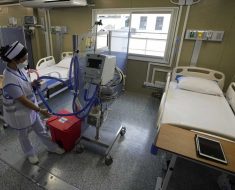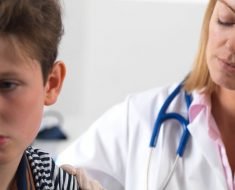Top infectious disease expert Dr. Anthony Fauci said on Monday that, although the prospect of a COVID-19 vaccine is heartening, the recent news from Pfizer and Moderna shouldn’t mean a relaxation of vigilance over the coming weeks.
“The cavalry is coming, but the cavalry is not here yet,” Fauci said at the American Medical Informatics Association virtual annual symposium.
“What we should do is we should make the hope of a vaccine motivate us even more to be very, very stringent and very, very attentive to fundamental, simple, doable public health measures,” said Fauci.
During his fireside chat, Fauci stressed the importance of data sharing and tracking as integral parts of the COVID-19 response.
“There are so many things that we need better data on,” said Fauci. “It’s there. The question is collecting it, putting it in a form that can be distributed.”
For example, he said, the levels of undetected community spread via asymptomatic carriers are still relatively unknown, and will continue to be murky without a wide-ranging testing initiative.
Although the U.S. Department of Health and Human Services has set up its HHS Protect website, that data is based on hospital reporting, not community testing – and agency veterans point out that it often lags a week or more behind.
“I think there are several areas that need improvement. One of them is the local public health system,” said Fauci.
“Years and years ago, prior to the elimination of some diseases by vaccines and the successes of antibiotics, the local city and state public health systems were really robust and sound,” he said. “We could have used them in contact tracing, identification, isolation, in the COVID situation.
“I guess you could say we were victims of our own success,” he added. “We let it essentially drip away. When we needed it, it wasn’t there. We’ve got to rebuild … our domestic local public health system and we need to strengthen what we called the global health security network and agenda.”
Fauci also pointed out the need for keeping track of those patients who continue to exhibit symptoms of COVID-19 long after their initial infection. Although some of those patients can be supervised via electronic health records, he said, not everyone has an EHR.
He touted the usefulness of sharing information, particularly in the context of public-private partnerships.
“We need to continue to be very open about encouraging – in fact, almost even mandating – data sharing as part of our research contract with our grantees and contractors,” said Fauci. “The data now are so voluminous that they need to not only be shared, but shared in a way that people can utilize them.”
He also argued that researchers should share what he called “negative data,” which he said can save other scientists valuable time.
“If you’ve done something, invested a year’s worth of work … you should be sharing both positive and negative data,” Fauci said.
With regard to the future of COVID-19 vaccine management, Fauci downplayed the idea of so-called immunity passports based on the existence of antibodies.
“No pun intended: An immunity card is not in the cards for us right now,” he said.
Instead, he pointed to vaccine registries as a public health tool to ensure that systems can track who has gotten a vaccine (and, if there are competing ones available, which vaccine patients received).
Ultimately, he said, it’s important to remember that COVID-19 is not going to be the last global infectious disease.
“Pandemics occur. They’re not somebody’s fantasy,” he said. “Preparation is much, much, much more important than response.”
Kat Jercich is senior editor of Healthcare IT News.
Twitter: @kjercich
Email: [email protected]
Healthcare IT News is a HIMSS Media publication.
Source: Read Full Article





